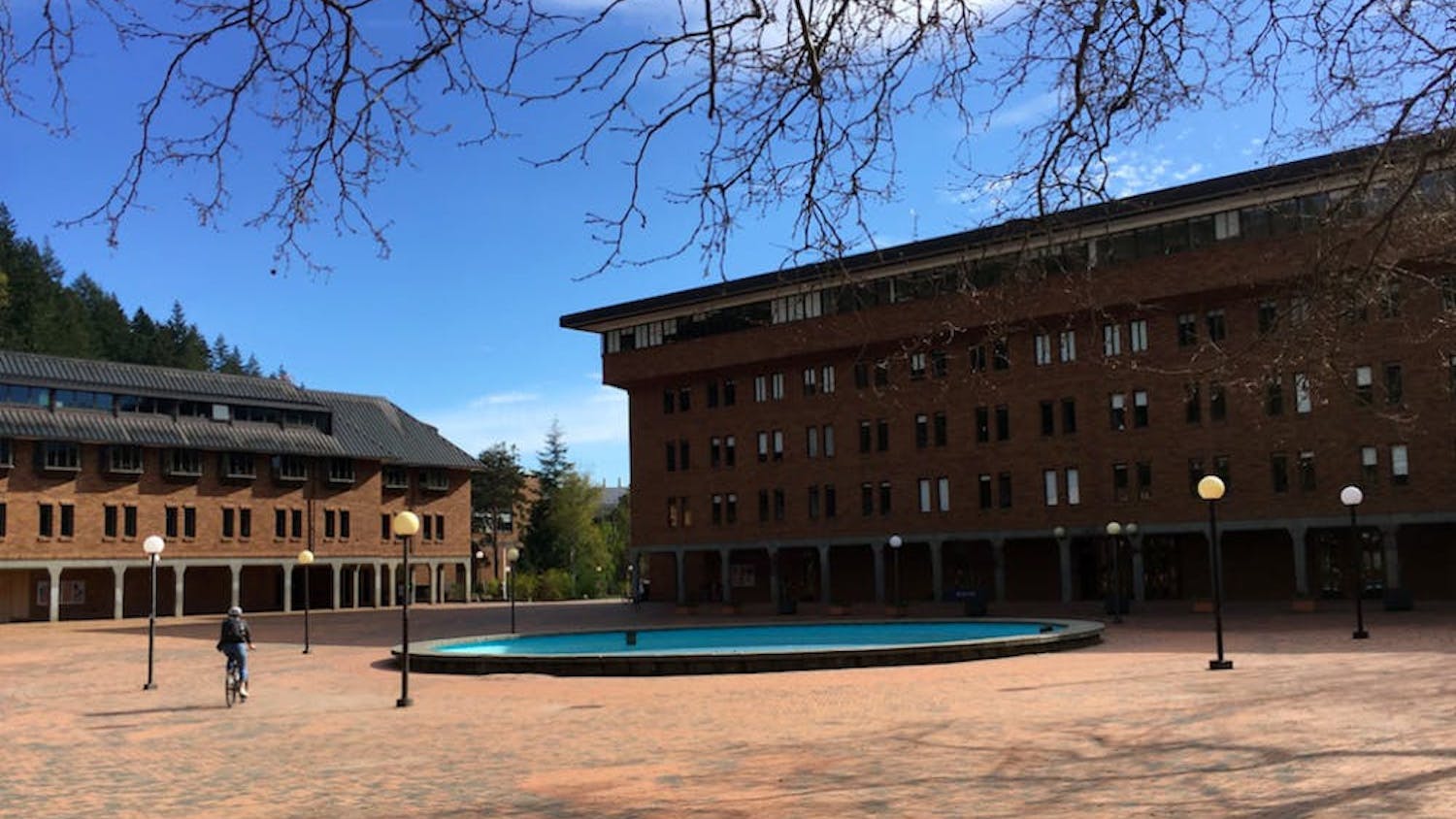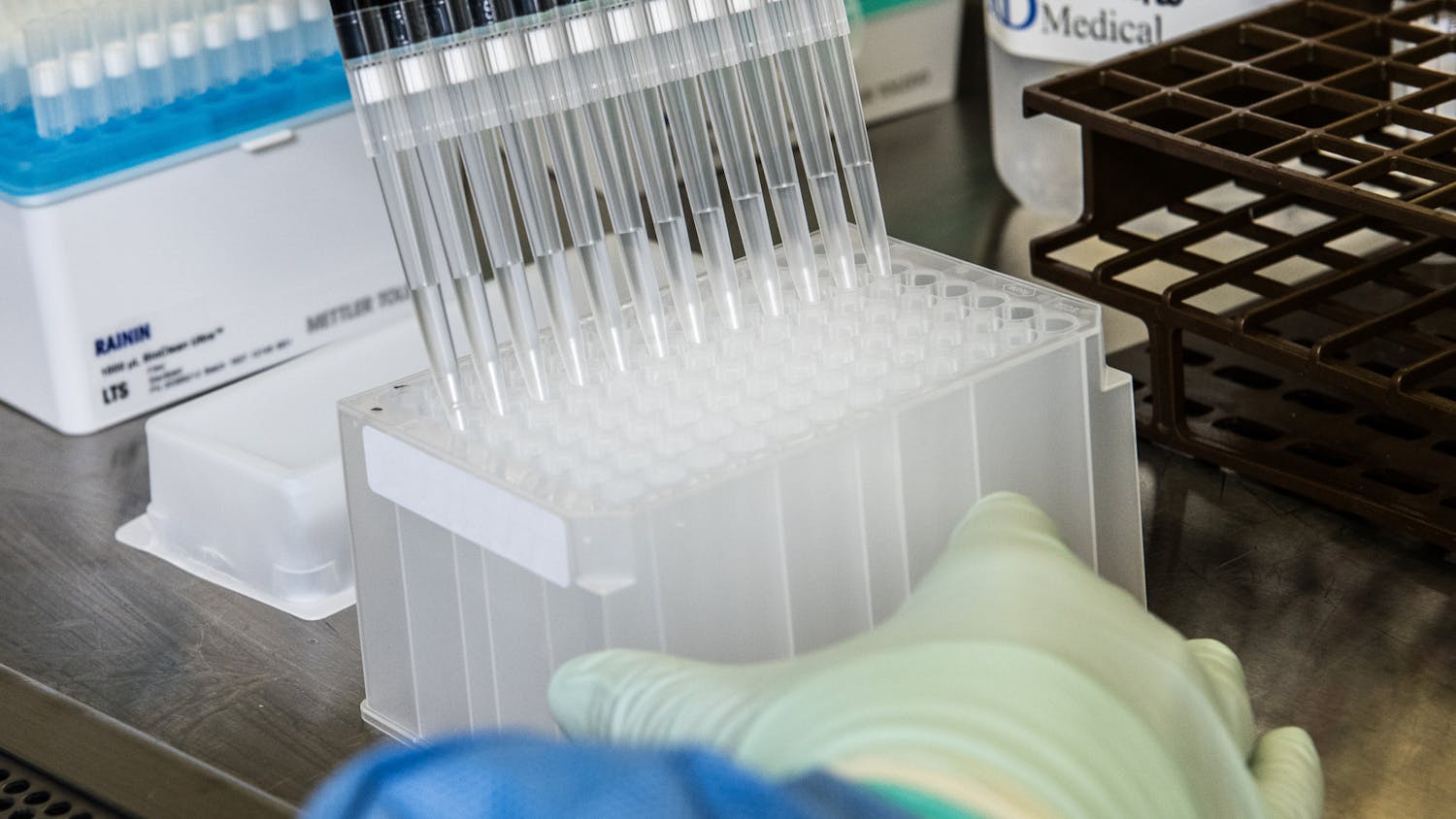The Omicron variant has spread quickly to Western Washington University’s campus, causing a shortage in tests at the school’s Student Health Center and leaving symptomatic students with fewer options.
From Jan. 4 through Jan. 10, Western’s COVID-19 recovery website reported 290 positive cases. Those six days accounted for 75% of the total cases recorded by the university for the 2021-2022 academic year so far.
Students weary of Omicron have been scheduling COVID-19 tests with the Student Health Center, where COVID-19 vaccines are also given. However, the rush to get a test on campus has caused waitlists to be several weeks long.
Dr. David Hansen, Western’s Associate Medical Director, said there are many factors that have contributed to this particularly overwhelming time at the Student Health Center.
“The combination of the Omicron variant and lack of COVID-19 testing options in the community has caused a significantly higher demand for testing than anticipated,” Hansen said. “This has resulted in filling all daily appointment slots in a matter of minutes.”
Hansen said the scarcity of available healthcare workers has hindered the Student Health Center’s efforts as well
In addition to the rise in cases, issues with the appointments themselves have become a large part of the Student Health Center’s struggles.
“The Student Health Center has consistently experienced a 50% no-show rate for testing appointments at College Hall,” Hansen said. “Students sign up for multiple appointments and then forget to cancel.”
Hansen said the missed appointments that are not canceled cannot be given to people waiting next in line. The Student Health Center has begun opening scheduling opportunities just three days in advance to minimize the chances of students forgetting to cancel their appointments.
To further combat the surge in demand for tests, Hansen’s team has done the following:
- Increased their number of daily testing appointments from 200 to 350.
- Extended their testing operations from four days a week to five.
Western’s in-person classes have been reverted to remote learning in response to the Omicron surge, as was announced in an official statement by Western’s President Sabah Randhawa on Jan. 12. The university-wide message claimed moving back to remote classes is “in the best interest of our community’s safety and wellbeing.”
Yet, despite Western’s decision, students with symptoms are still being negatively affected by the backup of testing appointments.
Ethan Henry, a visual journalism major at Western, last interacted with the Student Health Center on Jan. 9 when he attempted to sign up for a COVID-19 test.
“As we know, you can go through the student health portal and schedule an appointment through there, however, there were no COVID-19 testing appointments available throughout the next few weeks,” Henry said. “This was particularly concerning considering I was, and still am, sick and wanted to make sure I did not have COVID-19 before going to classes, which are now online anyway.”
Henry said he had to miss the entirety of his classes on Monday due to his symptoms and ended up ordering an at-home COVID-19 test as a last resort.
“I think that Western should really make their testing clearer, easier, and open to students who really need them,” Henry said.
These kinds of difficulties with testing and resources have perpetuated far beyond Western’s campus. In a media briefing on Jan. 11, Whatcom County Health Department Director, Erika Lautenbach, said the healthcare community lacks the resources to provide the number of tests desired by Whatcom County residents.
“There’s just an incredible demand for testing given how prevalent this has become in our community and we are working with our partners to try and increase capacity,” Lautenbach said.
Increasing access to over-the-counter products, as well as at-home COVID-19 tests, is also a focus of the county at this time, Lautenbach said. With Western’s current testing tribulations, home-delivered tests may be the only option.
However, for Maxwell Lemke, a fifth-year music major at Western, there was a different issue.
“I'm currently not taking classes full-time and was listed as ineligible to schedule tests through the school, but it didn't explain why,” Lemke said. “Once I figured out why they told me my options were to either pay $100+ to get access to the Student Health Center or add a class to become a full-time student.”
Lemke said he worries for less fortunate part-time students who can’t afford a $100 fee for a much-needed COVID-19 test. And like many others, Lemke said the switch back to online classes is an additional inconvenience.
“I’m f***ing frustrated,” Lemke said.
Max Larsen (he/him) is a third year News Editorial major and opinion reporter for The Front. He enjoys writing just as well as cars and old music. You can contact him at maxlarsen.thefront@gmail.com





